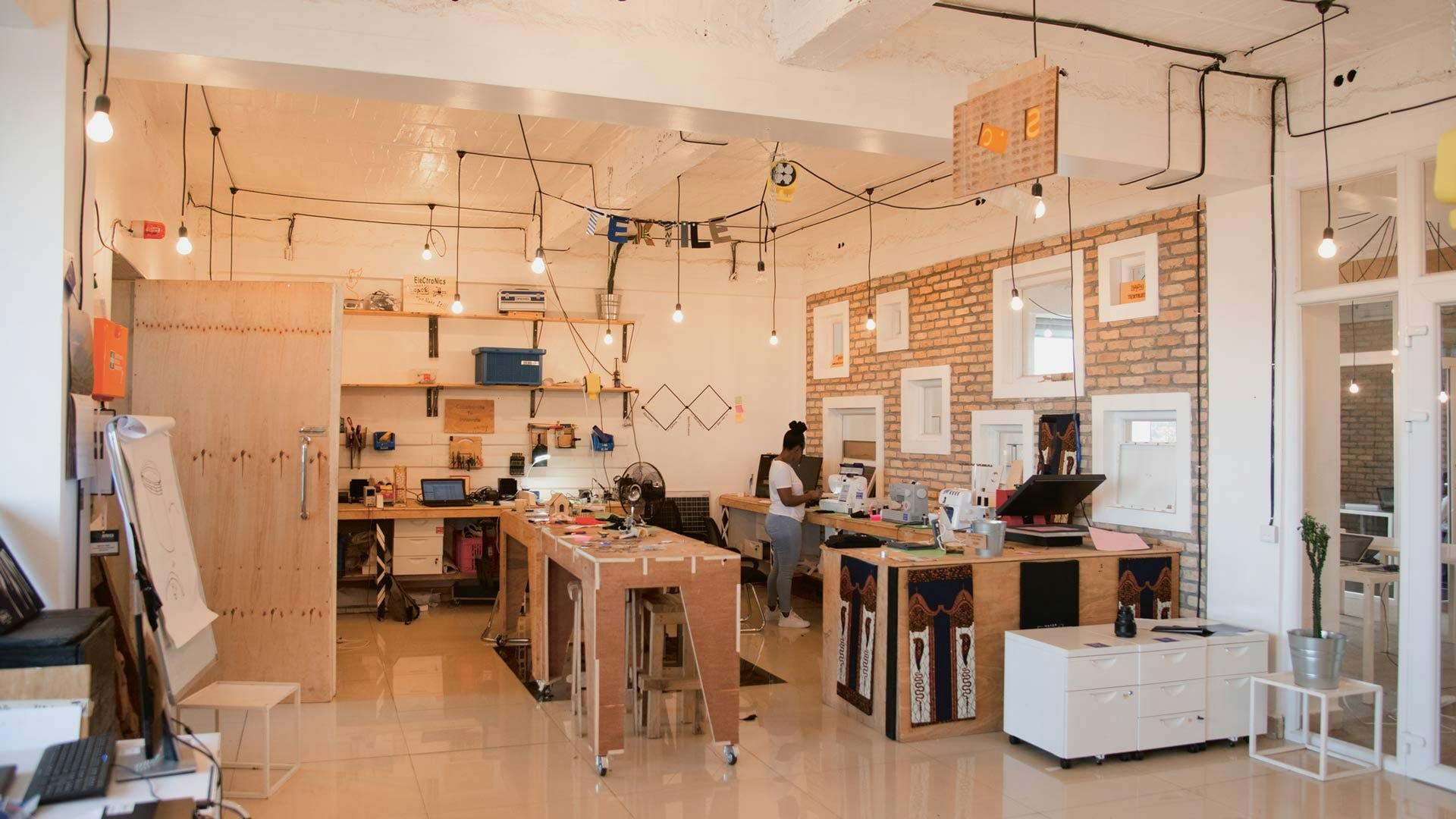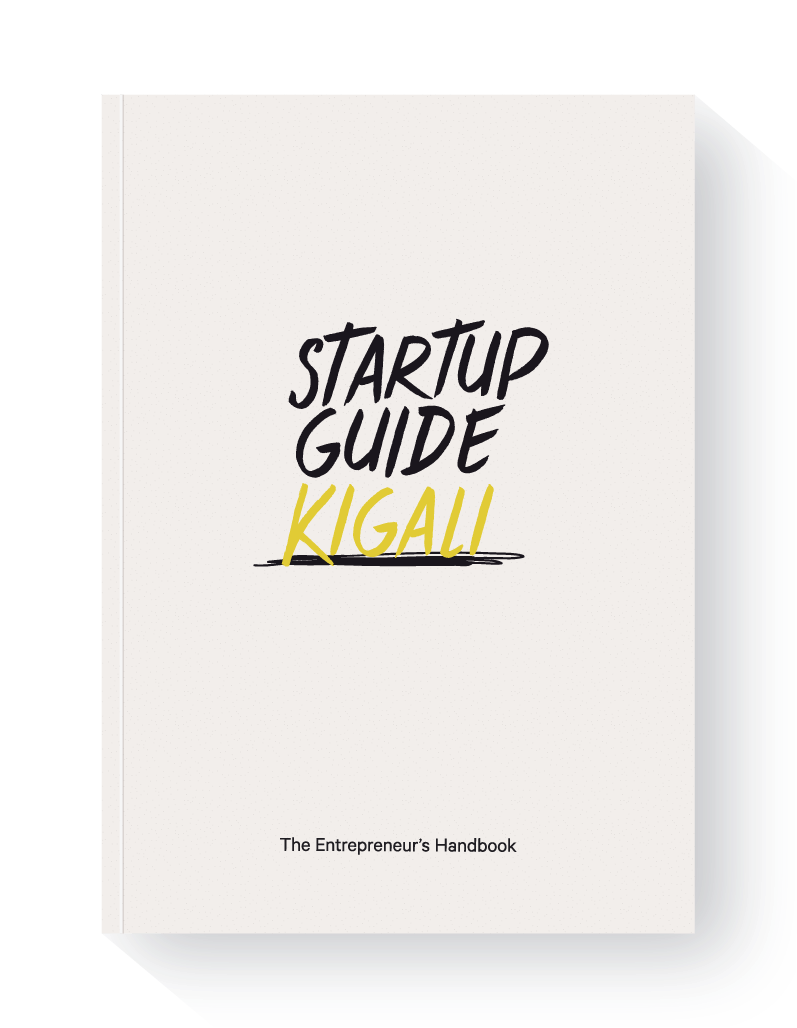Five Kigali coworking spaces supporting impact and innovation
igali’s entrepreneurial community is quickly growing, and there are many local entrepreneurs focused on impactful ventures. From environmentally conscious innovations to products and services that improve daily life for local communities, there is a range of purpose-driven businesses in Rwanda’s capital city. We profile some of the most impactful in Startup Guide Kigali. But where do these inspirational founders work from? Supportive coworking spaces that provide resources, comfortable workspace and networking opportunities are a key part of any entrepreneurial ecosystem. Here are five Kigali coworking spaces that support innovation and impact.
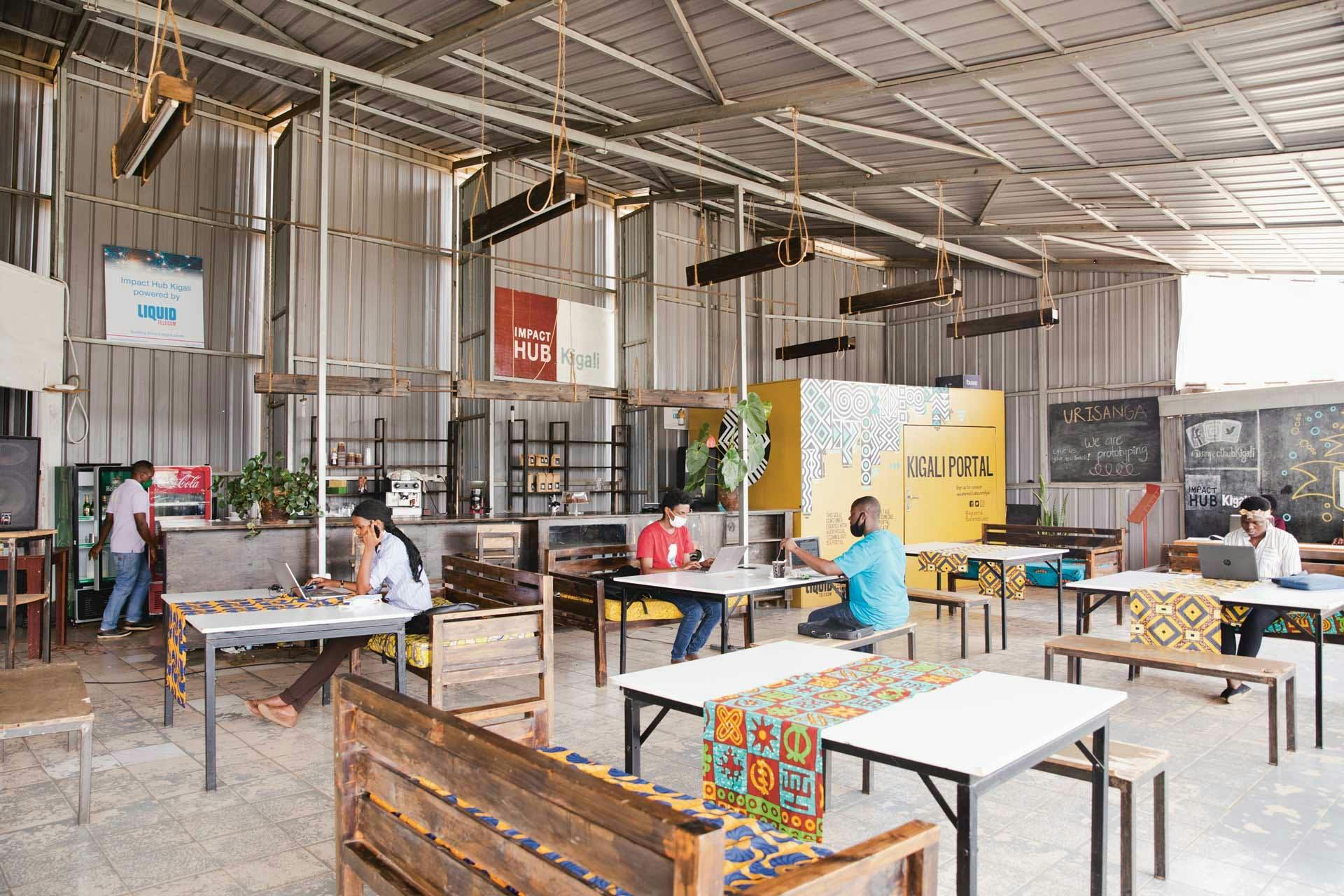
Impact Hub by Alex Niragira
📍 The Office, 3rd and 4th Floors, 34 KN 41 St., Kiyovu, Kigali
Headquartered in Vienna, the Impact Hub network of coworking spaces was designed to support startups with solutions that contribute to social and economic development.
The Kigali location launched in August 2015. It offers workspace with high-speed internet, a spacious meeting room and a roof terrace that can accommodate up to 150 people.
“The moment you walk into Impact Hub Kigali, you realize how unique a space it is. Our love for arts and culture immediately stands out, as our building is covered with colorful murals and paintings by artists from Rwanda and the region,” says Cares Manzi, the space’s manager.
As with all Impact Hubs, the organization is about more than coworking. Members have access to weekly events, where they can connect with a wider community of innovators and changemakers. They can also take part in innovation-catalyzing programs, which can help participants develop ideas and create pitches for funding and mentorship.
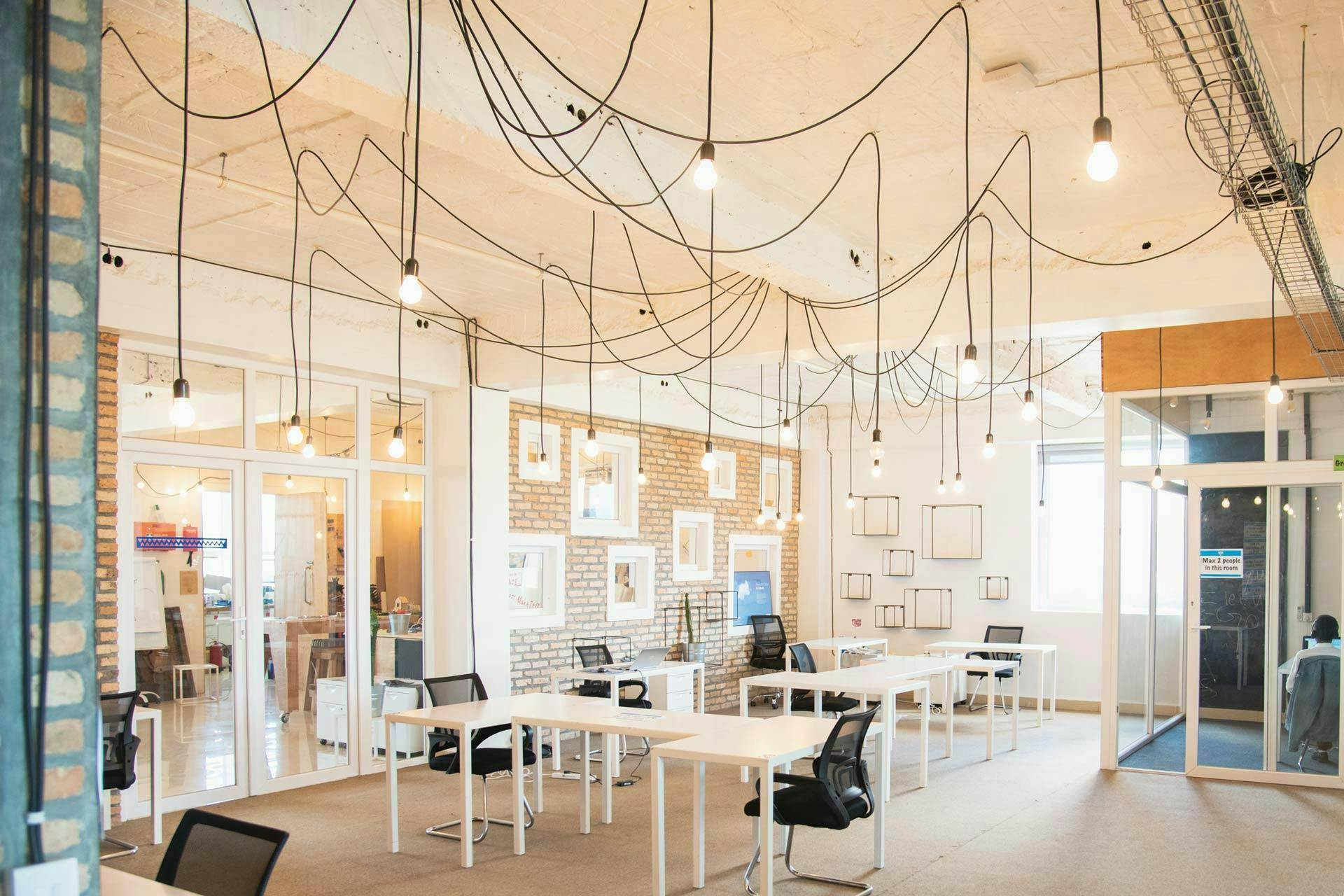
Westerwelle Startup Haus Kigali by Alex Niragira
📍 Fairview Building, 4th and 5th Floor, KG 622 St., Kigali
Launched in 2018, Westerwelle Startup Haus Kigali is an innovative coworking space offering desks and private offices alongside a host of amenities conducive to productivity and business growth.
High-speed internet, printing services, conference rooms and private phone booths are available to members. It also has a terrace with an impressive view of the city. The space is powered by Evonik Foundation and operated by the Westerwelle Foundation with an aim of fostering economic growth in the region by supporting young entrepreneurs and creating new economic opportunities.
An on-site makerspace is equipped with tools including a laser cutter and 3D printers, making it easy for members to create prototypes and collaborate with others who are specialized in production.
There is also ample opportunity to make connections at the space’s regular community events. Members take part in team-building sessions, weekly informal discussions of challenges and highlights, public networking drinks, open breakfasts and other meetups.
Westerwelle Startup Haus Kigali also offers a six-month entrepreneurship program that supports selected startups with training in finances and planning, as well as business diagnostic sessions and access to legal and financial support services.
[ Read more: Starting up in Kigali: Everything you need to know ]
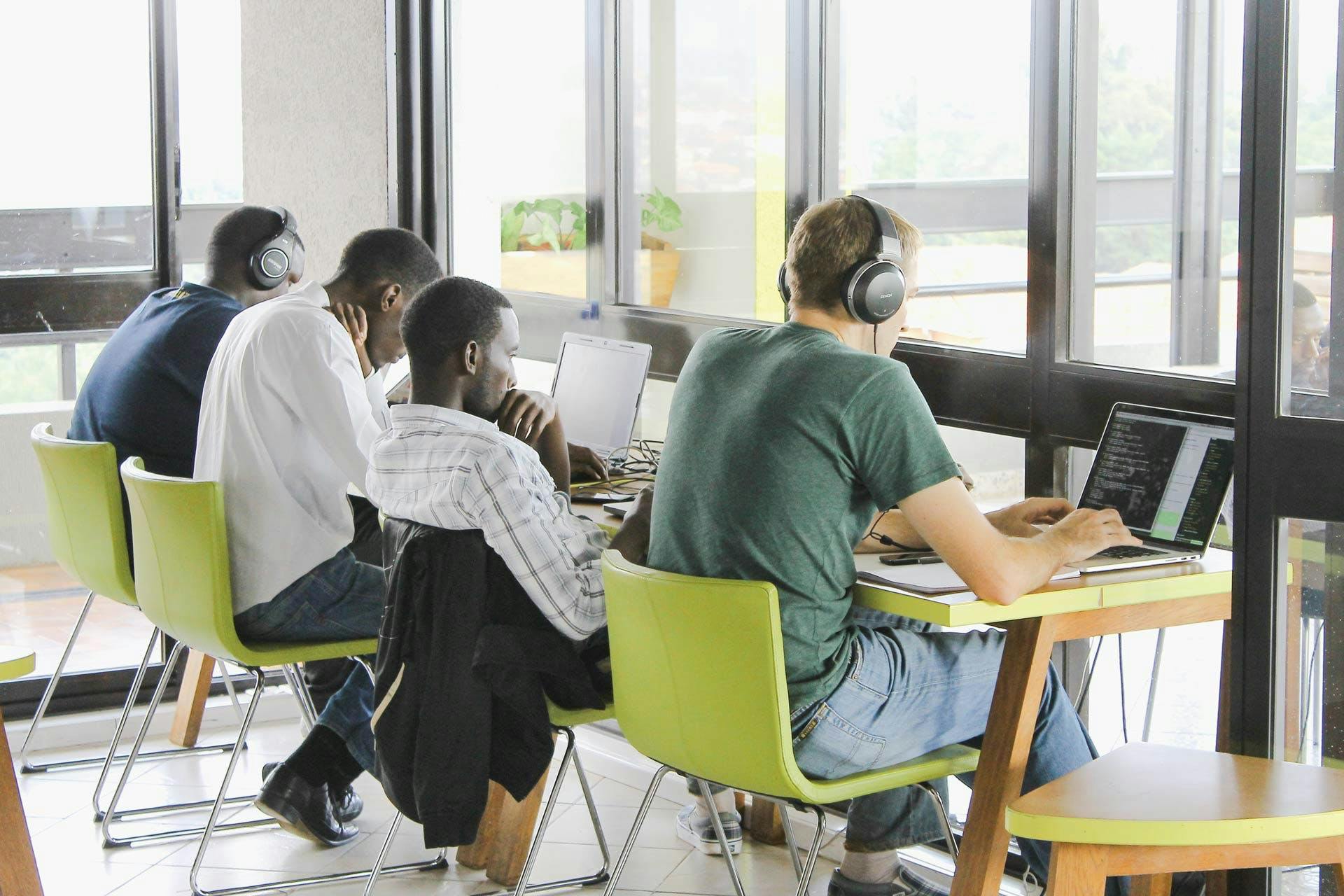
kLab
📍 Telecom House, 6th Floor, 8 KG 7 Ave., Kacyiru, Kigali
When kLab opened in 2012, the government-funded enterprise was the first innovation space in Kigali. Located at the top of Telecom House and with a 360-degree view of the city, the organization helps young entrepreneurs and students to turn their ideas into viable businesses. Its members can access the space 24/7, and it’s free to use.
kLab is central to the Rwandan government’s goal of establishing a knowledge-based economy and fostering innovative ICT-based SMEs. “kLab is at the bottom of the pyramid,” says Aphrodice Mutangana, the space’s general manager.
In addition to providing internet access and workspace for 150 people at a time, kLab offers access to a 500-strong mentorship community that provides both technical and business assistance to members. The hub also hosts a variety of events, workshops, bootcamps, hackathons and networking sessions to encourage collaboration, partnerships and investments.
“kLab's mission is to promote, facilitate and support the development of innovative ICT solutions by nurturing a vivid community of entrepreneurs and mentors,” Aphrodice says.
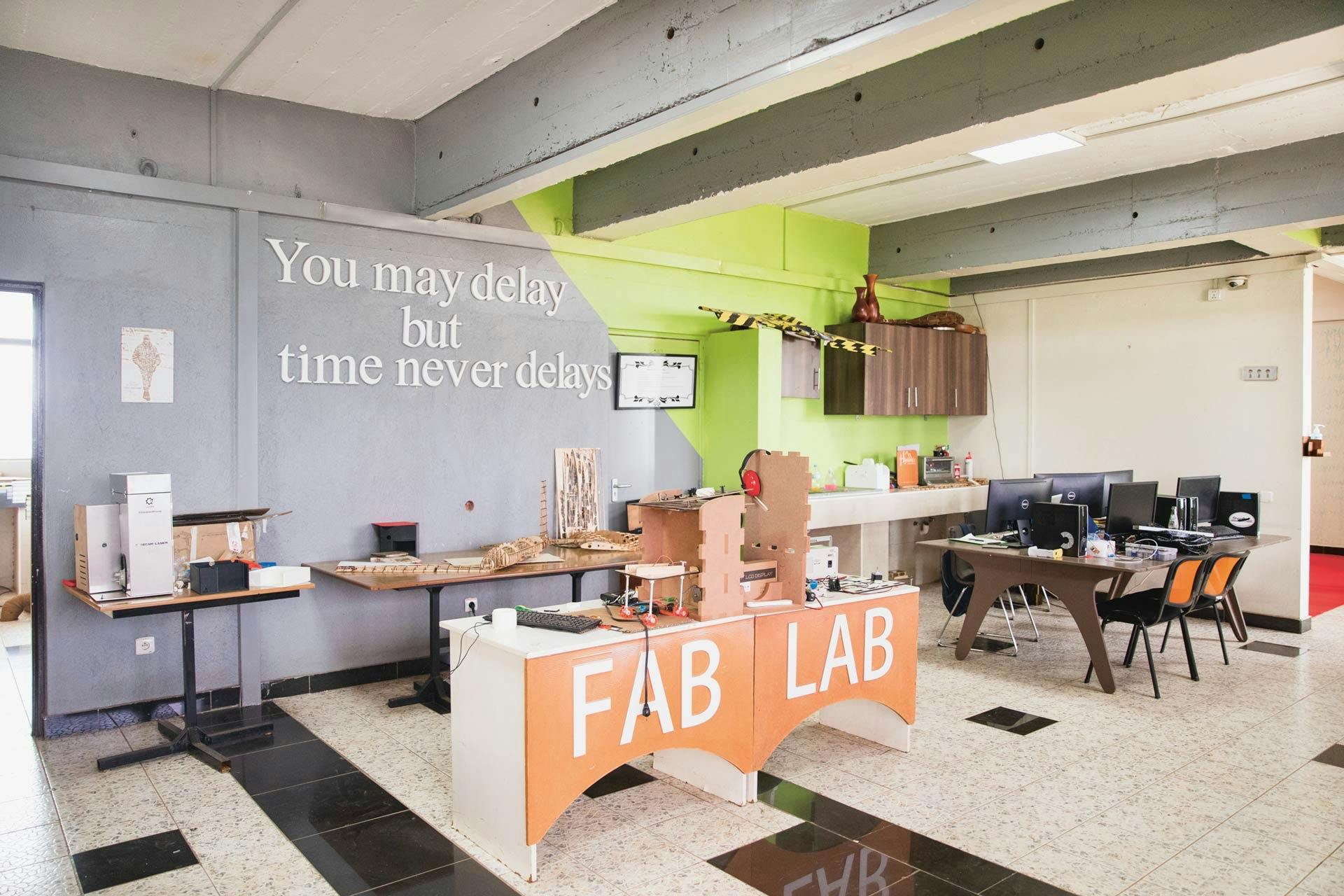
FabLab Rwanda by Alex Niragira
📍 Telecom House, 6th Floor, 8 KG 7 Ave., Kacyiru, Kigali
FabLab aims to provide innovative individuals with access to cutting-edge digital fabrication laboratories in cities around the world. These labs are more than just places to build a product – the organization also encourages members to mentor one another, share ideas and collaboratively realize impactful concepts. Through providing such spaces, the initiative is fostering a generation of bright minds who want to build a better future.
FabLab Rwanda was founded in 2016 to support the creation of hardware and electronics by local innovators. Participants typically use a four-step process to create a product: ideation; design and simulations to see what changes might need to be made; prototyping the product; and lab and customer testing as well as any refinement needed. Members have built everything from drones to educational materials.
The organization helps its members with every step of the process and provides funding. It also assists in the creation of business models and connects creators with investors. In 2018, FabLab Rwanda pivoted to a more business-oriented approach, seeking to help develop startups with marketable ideas and spread their impact across the continent.
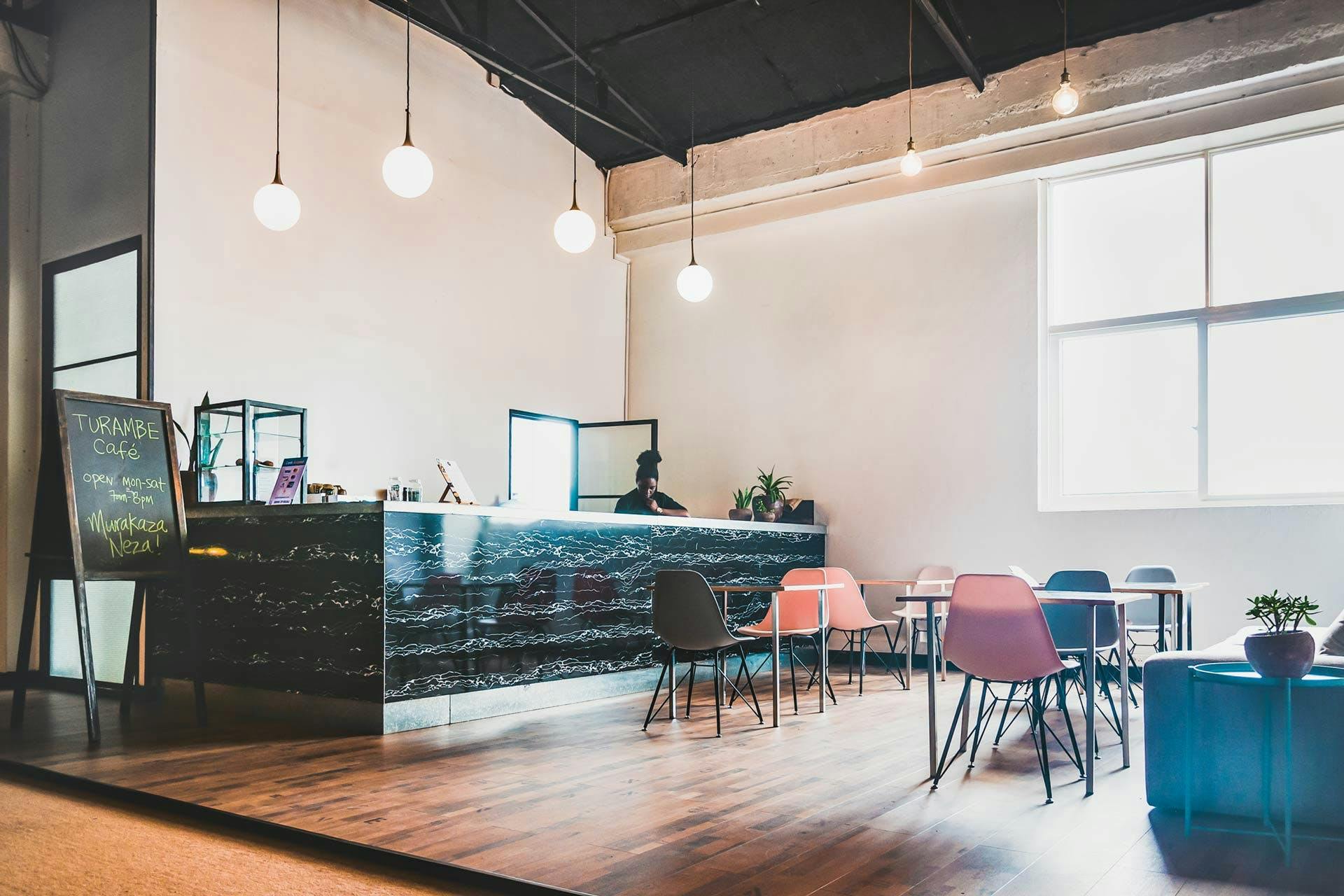
Waka Fitness Ltd by Guez Show
📍 KN 72 St., Kigali
Whether they’re hard-core fitness enthusiasts or entrepreneurs looking for a fresh approach to work–life balance, WAKA members enjoy a host of facilities that support a holistic lifestyle.
The multifunctional space was founded in 2014 by Jeannetta Craigwell-Graham and Dennis Dybdal, a Danish-American expat couple who couldn’t find a gym in Kigali to suit their needs. WAKA is a modern coworking space with private offices, hot desks and high-speed internet, but it’s also home to a well-equipped gym, basketball court and bouldering wall.
An in-house cafe serves meals designed by a registered dietician, and a physiotherapist is available. Classes and member events are designed to be inclusive, with options such as prenatal and postpartum workouts and regular family fun days.
Since its launch, the WAKA community has grown from 250 members to nearly 2,000. There’s a waiting list to sign up as the organization continues in its mission to push the boundaries of professional spaces. The WAKA team prides itself on remaining flexible and attuned to the needs of members, which has allowed the space to grow and adapt alongside the companies and individuals who work there.
[ You may also like: Discover Accra’s best coworking spaces ]
Want to learn more about the Kigali startup ecosystem?
Order your copy of Startup Guide Kigali now.
Written by Cayleigh Bright and Tom Jackson.
Repackaged by Hazel Boydell.
Header Photo: Westerwelle Startup Haus Kigali by Alex Niragira
